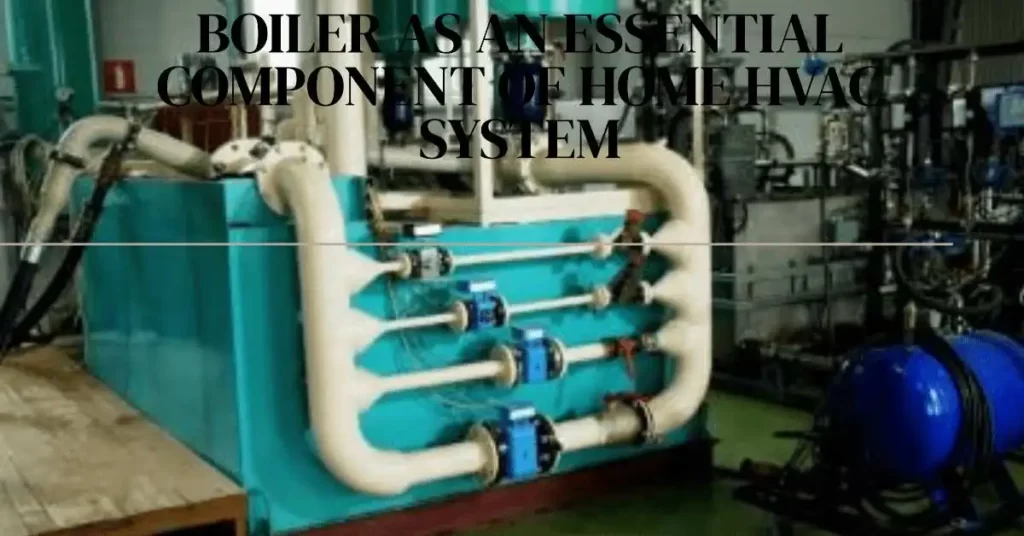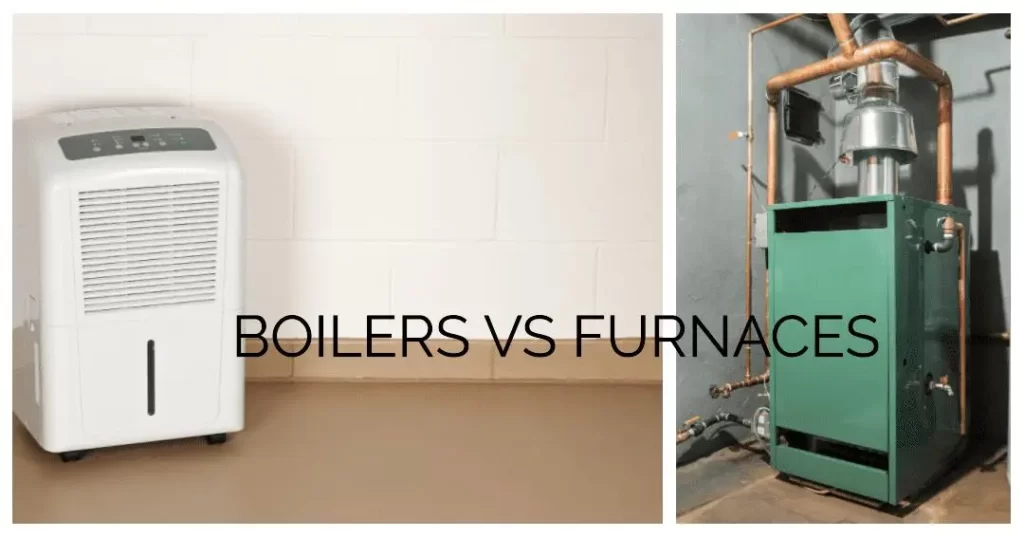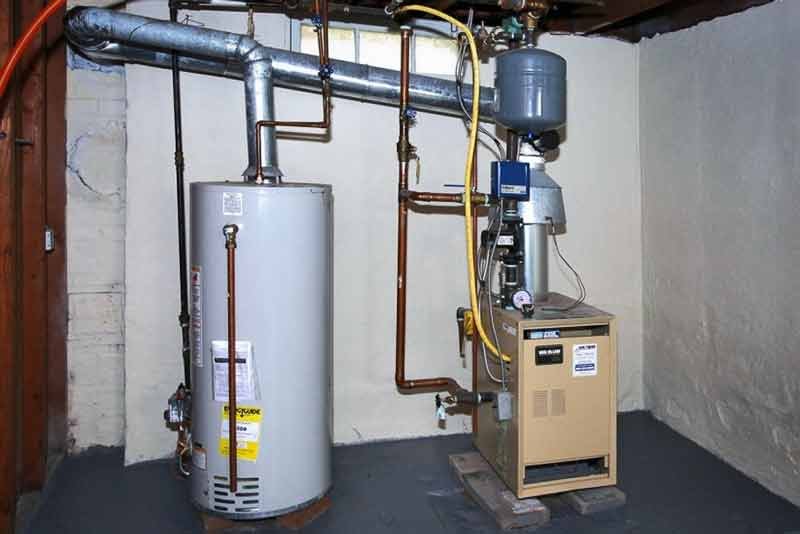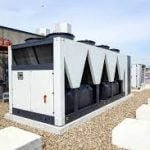“Is a Boiler Part of the Home HVAC System?” Absolutely a boiler plays a role, in HVAC systems. It acts as the heat source by either heating water or generating steam, which is then distributed to warm up your space.
The components commonly found in HVAC systems:
Think of HVAC systems as a puzzle consisting of pieces. The key components include:
- Furnace or Boiler: These serve as heat generators. Furnaces use air while boilers employ water or steam to provide warmth to your premises.
- Air Conditioner: This is the hero when it comes to cooling. It cools down the air. Circulates it to beat the scorching summer temperatures.
- Thermostat: Consider it as the control center. You set the desired temperature. It instructs the HVAC system accordingly.
- Ductwork: Picture a network of tunnels that transport cold air throughout your space. That’s what ductwork does.
- Vents and Registers: These act like openings where conditioned air is released. Vents help manage airflow direction while registers assist in regulating airflow volume.
- Filters: They are, like the cleaning crew. Filters trap dust allergens and other particles to maintain healthy air quality.
Exhaust fans: play a role, in maintaining ventilation by expelling stagnant air and introducing fresh outdoor air. They are crucial, for ensuring an environment.
What Are Boilers In-Home HVAC System
Boilers operate by heating water to produce steam or hot water, which is then circulated throughout the house to provide warmth. The fundamental operation involves the combustion of fuel (typically natural gas, oil, or electricity) to heat the water or produce steam. This heated fluid is then conveyed through pipes and radiators or in-floor radiant systems to warm the indoor space.
Types of boilers commonly used in residential settings:
Boilers come in various types, each with its unique features and advantages. In residential settings, the most common types include:
- Combi (Combination) Boilers: These boilers combine both heating and hot water supply functions in a single unit. They are compact and efficient, making them suitable for homes with limited space.
- System Boilers: System boilers have components like pumps and expansion vessels built-in, making installation easier. They work well with sealed central heating systems.
- Conventional (Regular) Boilers: These are often referred to as traditional or heat-only boilers. They require additional tanks for storing hot water and are suitable for homes with higher hot water demand.
- Condensing Boilers: Condensing boilers are known for their high energy efficiency. They recover heat from the combustion process and are environmentally friendly.
Are Boilers a Key Component of Home HVAC?

The Importance of Boilers in Home HVAC Systems
The role boilers play in home HVAC systems:
When it comes to keeping our homes warm boilers are the heroes. They have a role at the core of the heating system as the heat source.
Boilers work by either heating water or producing steam, which is then circulated through a network of pipes, radiators, or coils. This fluid flows throughout the house ensuring a supply of warmth.
In essence, boilers are like the backbone of the heating system creating a comfortable environment for everyone living in the house.
Types of home HVAC systems that incorporate boilers:
Boilers are versatile and integrate well into various home HVAC setups, commonly found in forced-air systems. They also play a crucial role in hydronic heating, circulating heated water through concealed pipes for even warmth distribution in homes. Boilers are adaptable and indispensable in diverse home HVAC systems, making them key components.
In Hydronic Heating Systems, boilers heat water, which circulates through concealed pipes or tubes, providing even and comfortable warmth throughout the home.
Read Also: Types of HVAC Systems in Apartments
Benefits of using boilers for home heating in HVAC systems:
- Consistent and Even Heating: Boilers excel at providing a uniform distribution of heat throughout the house eliminating temperature spots commonly found in forced air systems.
- Energy Efficiency: Boilers are highly regarded for their energy efficiency as they operate at levels of effectiveness. This leads to reduced energy consumption, lower utility costs, and minimized environmental impact contributing to both cost savings and environmental responsibility.
- Fuel Versatility: Boilers offer the flexibility to run on fuels such as gas, oil, or electricity depending on regional availability and specific heating requirements of homes. This adaptability ensures suitability in environments.
- Durability and Longevity: Boilers are renowned for their construction and reliable performance resulting in a lasting and cost-effective home heating solution. Their durability guarantees years of warmth making them a dependable choice, for HVAC systems that also make sense.
Boilers vs Furnaces

Differences between boilers and furnaces in Home HVAC systems:
Boilers and furnaces, when it comes to home HVAC systems, have distinct functions. Boilers operate by heating water or generating steam, which then circulates through a network of pipes to provide radiant heat. Furnaces, on the other hand, directly warm the air, which is then distributed throughout the home via ducts and vents. The primary difference lies in how heat is delivered—either through water or air.
Which one is more commonly part of a home HVAC system?
In the context of home HVAC systems, furnaces are more prevalent. They are often integrated into forced-air systems, which are commonly used in residential settings. While also used in homes, boilers are frequently found in specific applications like hydronic heating or radiant floor heating systems. So, for most home heating solutions, furnaces are the more common choice.





